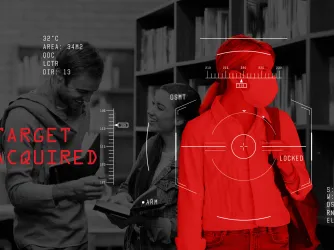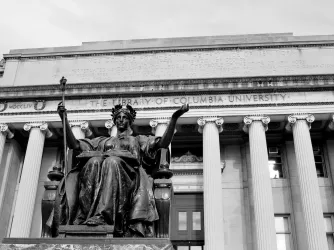Table of Contents
Due Process Problems on Your Campus?
It’s a well-known fact that many campus disciplinary procedures lack adequate due process protections. This week, the Daily Princetonian featured a column detailing some of the due process concerns with Princeton’s Residential College Disciplinary Board (RCDB). Here’s a sample:
- when accused, students are not allowed to attend their hearing;
- the hearing is held in secret so students have no way of countering false accusations or knowing if the evidence presented against them is accurate;
- there is no requirement that students be informed of the charges against them;
- the officer in charge of the investigation is also the officer in charge of the students’ defense at the hearing;
- students have the option of submitting a written statement but there is no guarantee the statement will be read or considered at the hearing;
- students only have one week to appeal the decision after the hearing but if they receive the decision late, they may have no chance to appeal.
The authors propose a handful of very sensible suggestions:
- students should be formally notified of the charges against them;
- students be allowed to represent themselves directly to the person or people who will adjudicate their guilt or innocence;
- students should be informed in a timely manner of the outcome of their case;
- students should be protected from the use of illegally obtained evidence and be given full information about the rights and processes of appeal after their cases have been heard.
Many of you may have disciplinary systems with some of the problems listed above. Due process rights are essential to liberty and reforming these policies is a crucial CFN project. FIRE’s Guide to Due Process and Fair Procedure on Campus gives a good outline of the legal conditions of due process and hard copies are free upon request.
Recent Articles
Get the latest free speech news and analysis from FIRE.

FIRE statement on FCC approval of Skydance-Paramount acquisition
The FCC has no business dictating the editorial choices of media outlets or conditioning merger approval on the viewpoints a network chooses to air.

The mercenary spyware industry is a menace to global free expression
As authoritarian regimes weaponize commercial spyware to silence critics, a booming mercenary surveillance industry thrives in the shadows — and even democracies aren’t immune.

Smile for the surveillance state
With mask bans spreading across college campuses, Nora Mitchell explores how these policies are eroding academic freedom.

FIRE statement on Columbia University's settlement with Trump administration
On July 24, 2025, Columbia University announced that it reached an agreement with the Trump administration to restore federal funding that was revoked over allegations of its handling of anti-Semitism on campus.